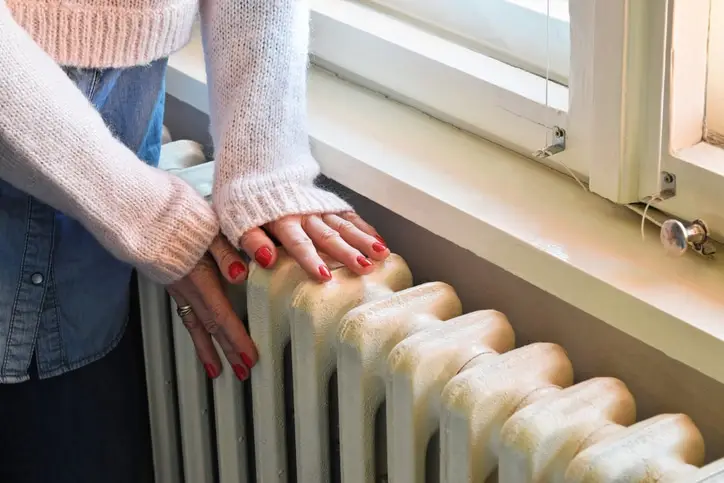Ever experienced radiator airlocks? Perhaps you’ve noticed your radiators staying cold despite the heating being on? The culprit could be air trapped within the system, preventing hot water from circulating properly. This airlock can cause several issues, from uneven heating to noisy radiators. This article highlights the common causes of air in your heating system and explores solutions to get those radiators toasty again.
How Does Air Infiltrate Your Heating System?
While air existing in a closed system like your central heating might seem strange, there are several ways it can sneak in:
• Natural Introduction: Our tap water contains dissolved gases, including oxygen and nitrogen. As water heats and cools within the system, these gases can escape and form air bubbles. This is a normal occurrence, but annual maintenance helps manage it.
• System Modifications: Introducing new radiators or replacing valves inevitably allows air into the system. Proper bleeding of the specific area and all radiators afterwards is crucial.
• Leaks: Leaks act like a two-way street. Water escapes, but air gets sucked in to fill the void. Frequent bleeding could indicate a leak, so be sure to inspect your system for any drips.
• Rust and Corrosion: Over time, iron-based radiators can rust, releasing hydrogen gas that forms pockets within the radiator. This can cause cold spots at the bottom and dark-coloured water when bleeding.
• Expansion Vessel Failure: This pressurised component accommodates water expansion during heating. A faulty diaphragm in the vessel can allow air to leak into the system, causing further issues. Regular boiler servicing can identify this problem.
• System Design: While less common, the pump’s placement and overall pipe structure can influence air accumulation. If airlock becomes a frequent and severe issue, consult a professional, such as WaterGuys, to assess your system design.
Understanding Airlock and Its Effects
Airlock occurs when trapped air forms a blockage within the system, strong enough to impede the flow of hot water. Imagine a pipe – water should flow freely through it. However, if air bubbles accumulate (think white dots in the pipe), they can disrupt the water flow, causing uneven heating in different radiators.
This airlock manifests in several ways:
• Cold Spots: Radiators feel cold despite the heating being on. This often indicates air pockets preventing hot water from reaching specific sections of the radiator.
• Uneven Heating: Some radiators may heat up perfectly, while others remain cold due to air pockets blocking the water flow.
• Noisy Radiators: Gurgling or hissing sounds from the radiators can be a telltale sign of trapped air.
• Frequent Bleeding: If you find yourself needing to bleed your radiators frequently, it could be a sign of a leak or another underlying issue causing air to constantly enter the system.
Banishing the Airlock: Solutions to Consider
Now that you understand the causes of radiator airlocks, let’s explore how to combat them:
• Bleeding Your Radiators: This is the first line of defence. Each radiator has a bleed valve, typically located at the top. By opening the valve slightly, you allow trapped air to escape, followed by water. Be sure to follow proper safety precautions and consult a guide on bleeding radiators if needed.
• Annual System Maintenance: A yearly service by a qualified professional ensures your heating system is operating optimally. They can check for leaks, ensure proper pressure levels, and identify potential issues like a faulty expansion vessel.
• Addressing Leaks: If leaks are identified as the source of air ingress, prompt repair is essential. Left unattended, leaks can waste water, damage property, and allow further air into the system.
• System Design Review: In rare cases, the system design might be contributing to airlock. Consulting a heating engineer allows for a thorough assessment and potential modifications to improve circulation and minimise air accumulation.
By understanding the causes and solutions for radiator airlocks, you can keep your heating system running smoothly and ensure a warm and comfortable home throughout the winter months.
Remember, addressing airlocks promptly can prevent further problems and ensure efficient heating performance.
Remember, addressing airlocks promptly can prevent further problems and ensure efficient heating performance.
Still struggling with airlocks and cold spots? The experts at WaterGuys can diagnose and resolve the issue, ensuring your home stays warm and comfortable. Call us today on 020 313 77749
